Russian spy case draws comparisons to other targeted poisonings
The Kremlin has been accused of carrying out poisonings in the past.
As British authorities work to establish who was behind the poisoning of a former Russian double agent with a nerve agent last week, suspicion has quickly fallen on Russia.
Britain’s government has said it is too early to assign blame for the attack in the small town of Salisbury that left Sergey Skripal and his daughter, Yulia, 33, in critical condition.
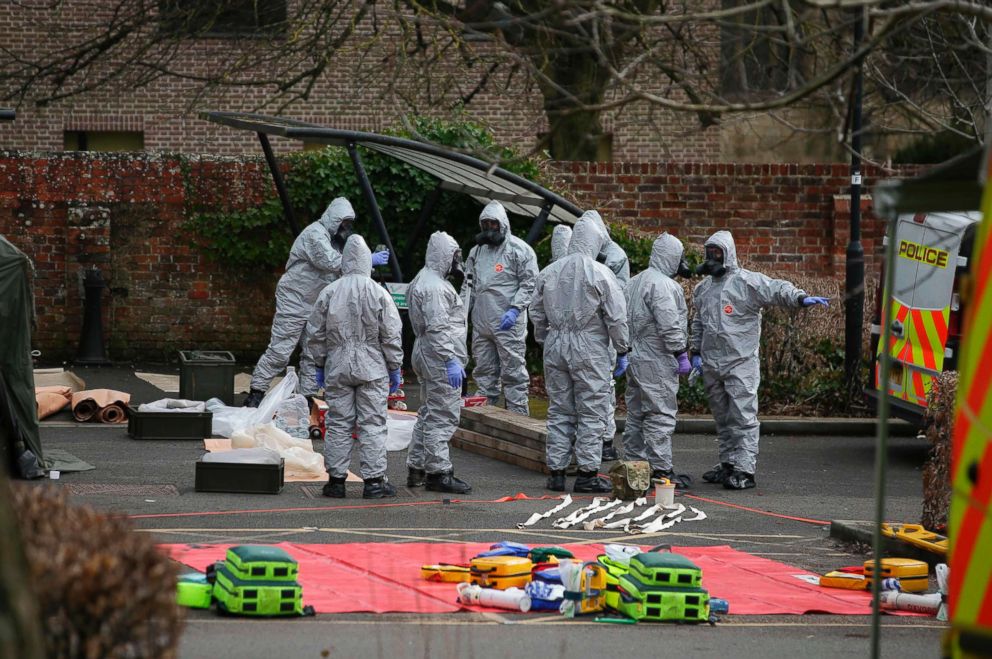
But officials have implied Russia is currently their prime suspect.
“If it’s as bad as it looks, it is another crime in the litany of crimes that we can lay at Russia’s door,” Britain's foreign secretary Boris Johnson told the country's parliament, adding that if Russia is involved, it will face a "robust" response.
Those suspicions are being fueled by a long history of Kremlin opponents suffering mysterious poisonings -- a list that stretches from the Soviet era all the way to the present.
The best-known case and one that has drawn obvious comparisons with Skripal’s poisoning is that of Alexander Litvinenko. A former intelligence officer from Russia’s Federal Security Service, or FSB, Litvinenko had become a vocal opponent of President Vladimir Putin before he was murdered with radioactive poison that slipped into his tea at a London hotel in 2006.
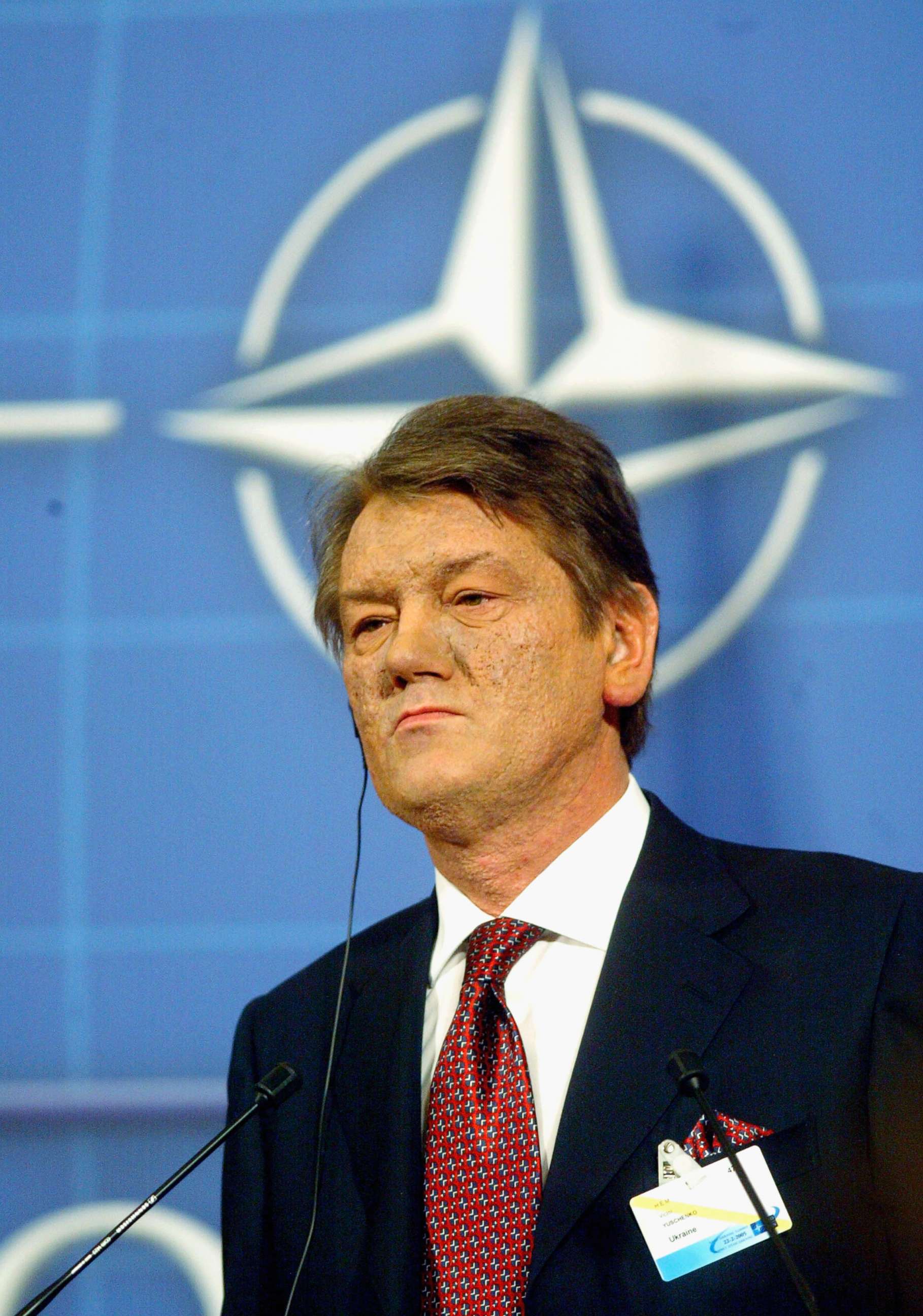
The attack used polonium 210, a rare metal that can be produced at only a handful of state facilities. As in the Skripal attack, the poison was dangerous to bystanders, leaving a radioactive trail across London.
A British public inquiry found there was a “strong probability” that two Russian men identified as the killers acted on Putin’s personal order to murder Litvinenko, who had been cooperating with Britain’s MI6 intelligence agency.
Russia blocked British efforts to question the men and the incident caused relations between the two countries to deteriorate.
Litvinenko’s death suggested that the Kremlin under Putin was continuing a Soviet practice of assassinations using poisons. A KGB general's memoir in 1994 described a secret facility -- "Lab X" -- which specialized in producing hard-to-detect poisons.
The weapon used in the most famous of Soviet-era assassinations also reportedly came from "Lab X" -- when Bulgarian dissident Georgia Markov was killed with a ricin-tipped umbrella in London in 1978.
Ukrainian politician Viktor Yushenko was also poisoned. While running for president in 2004 against a Kremlin-favored candidate, Yushenko's face was left severely disfigured after someone slipped him dioxin.
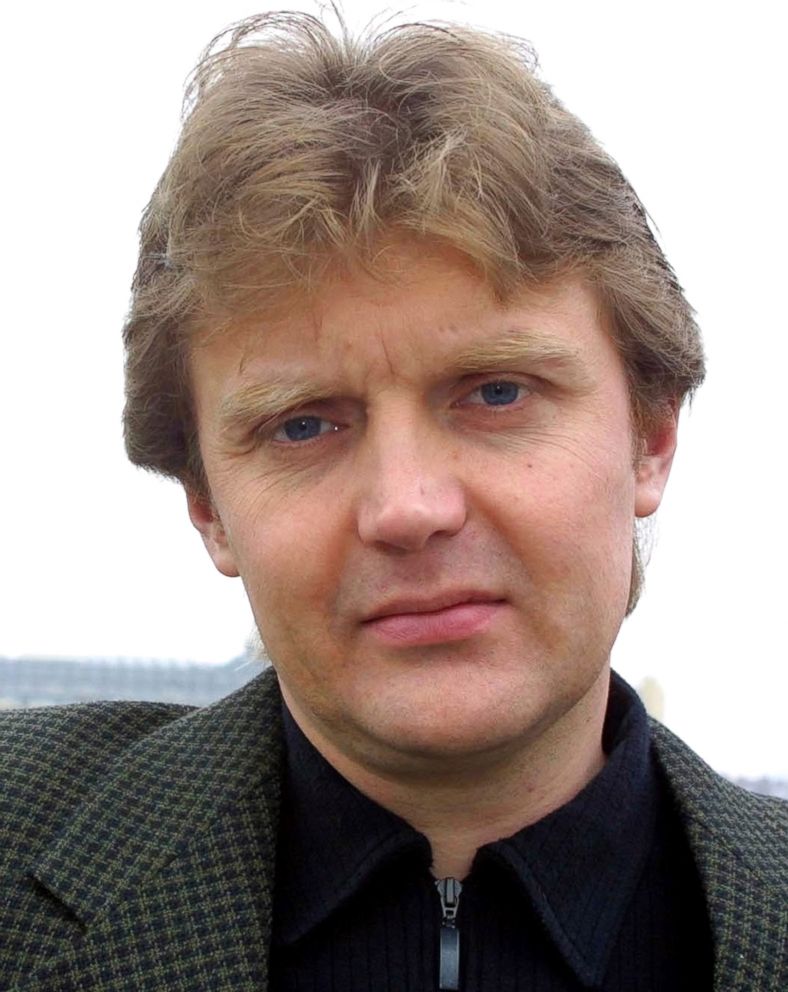
There have been more recent cases since. Vladimir Kara-Murza, a prominent activist working for the anti-Putin campaign group, Open Russia, was almost fatally poisoned twice in two years.
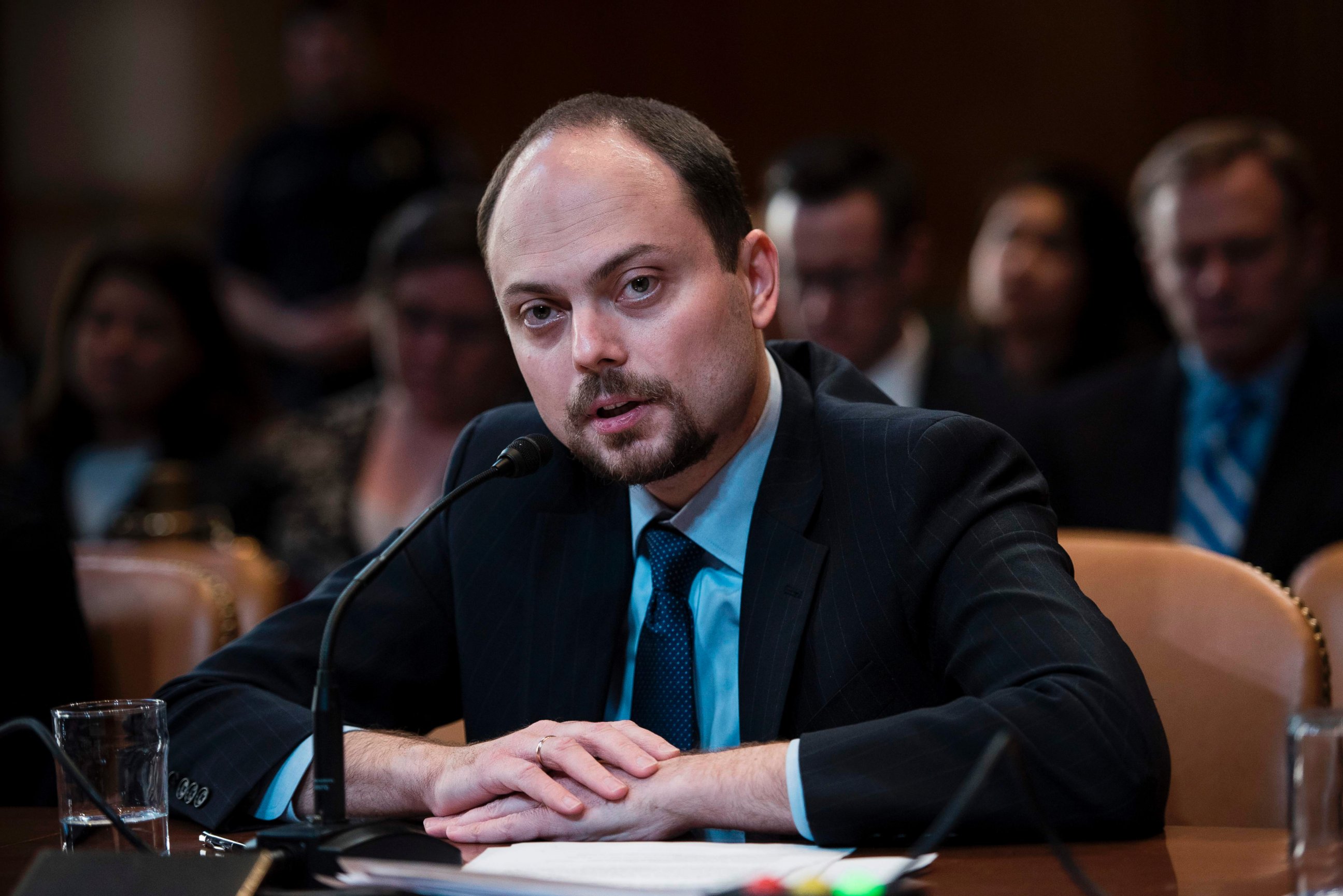
In 2015 and again in 2017, Kara-Murza became suddenly ill and within hours most of his organs began shutting down. Doctors were unable to identify the poison or even a trace of it besides Kara-Murza's inexplicable physical collapse.
Kara-Murza, who survived, has linked the attacks to his work promoting the Magnitsky Act, legislation that allowed for U.S. sanctions against Russian officials. He lobbied Congress to pass the bill, which is named after the lawyer, Sergey Magnitsky, who was killed for uncovering a $230 million tax fraud involving Russian officials.
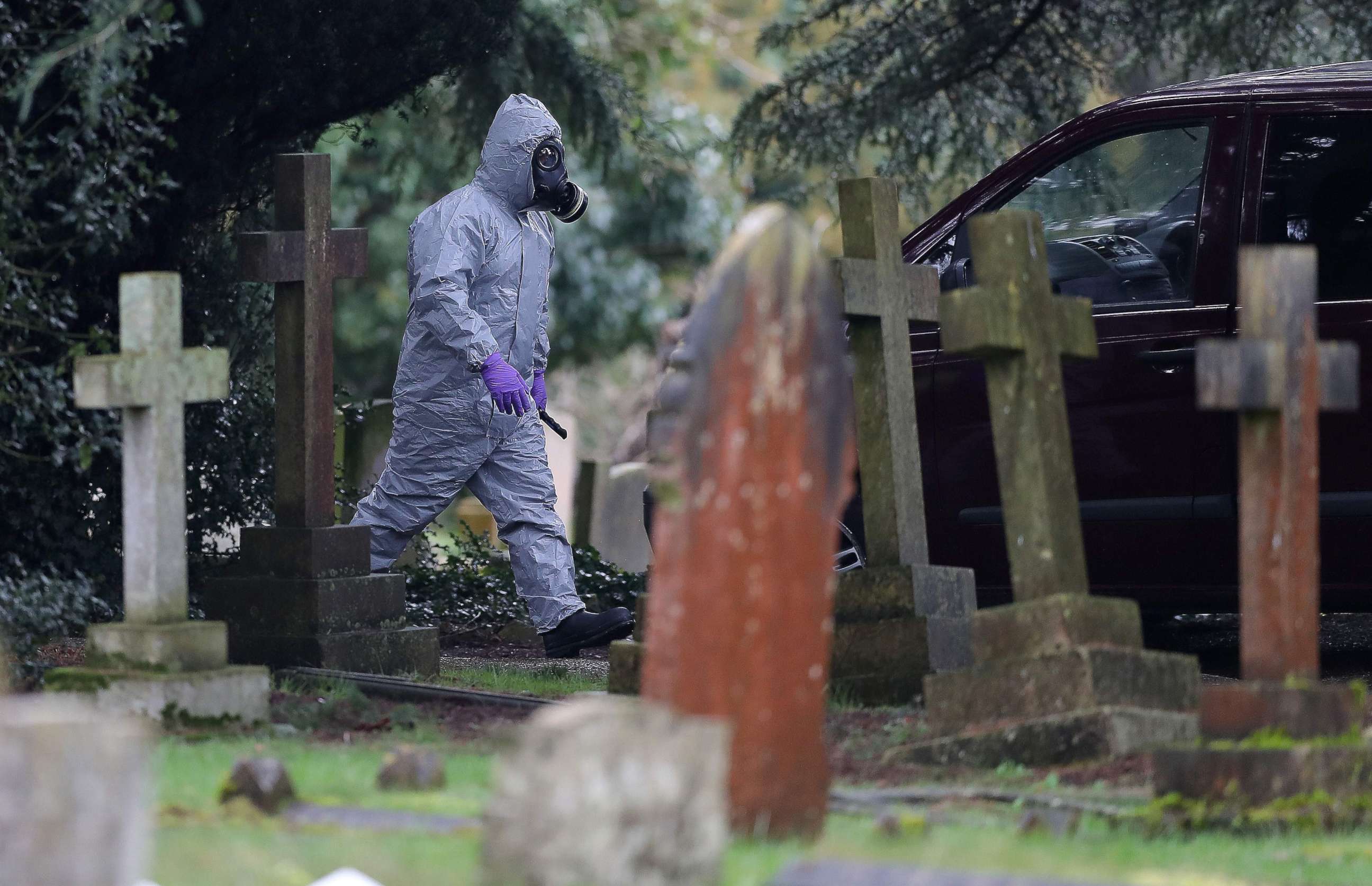
The Act infuriated the Kremlin, which has launched a concerted campaign against it and sought to jail some of those who promoted it.
Suspicions of poisoning have arisen in another mysterious death linked to the Magnitsky affair. Sergey Perepilichnyy, a businessman who had supplied documents in the case, died outside his home in England in 2012 while jogging.
Two autopsies were inconclusive, but one expert who testified during the inquest found traces of a rare poisonous plant in Perepilichnyy’s stomach.
Some of Perepilichnyy’s colleagues have insisted they believe he was murdered, despite police investigations that rejected that.
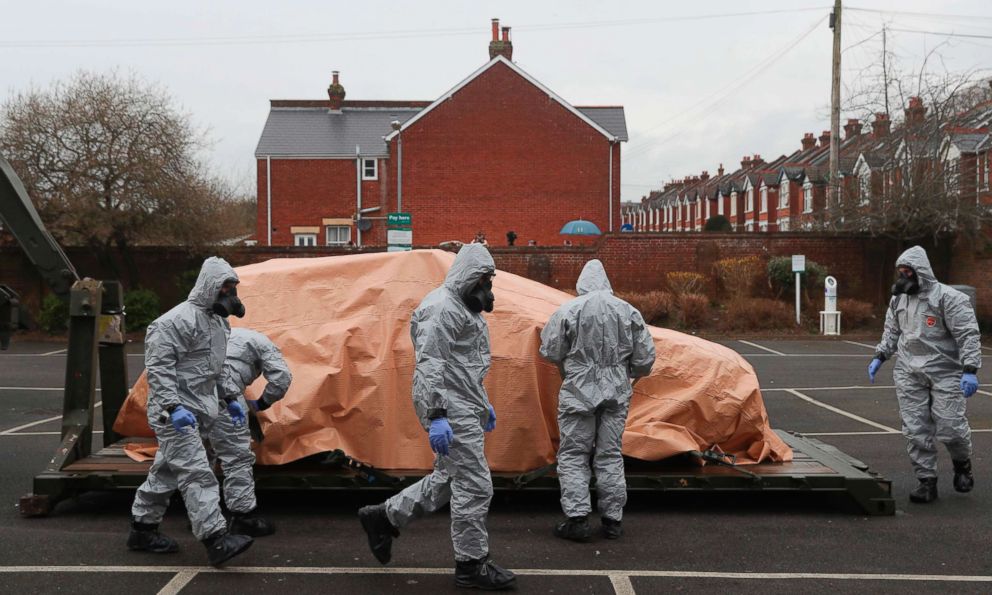
The suspected poisonings have accompanied a series of other murders and strange deaths among Kremlin opponents in recent years. In 2015 opposition leader, Boris Nemtsov was shot dead yards from the Kremlin; last March, Denis Voronenko, a former MP from Putin’s ruling United Russia party who had defected to Ukraine was gunned down by a hitman in central Kiev; and in 2016, a Kremlin insider, Mikhail Lesin, was found dead in his Washington hotel room having suffered blunt force injuries.
A coroner found Lesin’s death was accidental but did not explain how he had received the injuries.
Lesin's death was one of 14 Russian deaths that have attracted renewed suspicion in some quarters recently after Buzzfeed reported last year that U.S. intelligence suspected they were Kremlin hits.
Yvette Cooper, the chairwoman of Britain’s parliamentary Home Affairs committee, this week called for police to reexamine the 14 deaths in light of Skripal’s poisoning.
Russia has denounced the allegations as hysteria. Foreign Minister Sergey Larvov this week said suggestions of Russian involvement were “pure propaganda.” But a news anchor on Russian state television has raised eyebrows when he issued a mocking warning to “traitors” to avoid Britain.
Linking poisonings to the Kremlin, however, has been difficult, and experts have cautioned against assuming Putin ordered the attack on Skripal. Leads in other cases have sometimes pointed to Putin allies, but it is hard to judge whether they might have been operating on their own.
Evidence in the Nemtsov murder, for instance, has led toward figures around Ramzan Kadyrov, Chechnya's president, whom Putin installed and who has been accused of running deaths squads.
Sir Andrew Wood, the British ambassador to Russia from 1995 to 2000, told the Guardian newspaper that he had no doubt the attack on Skripal had been sanctioned from within Russia, but probably not directly by Putin.
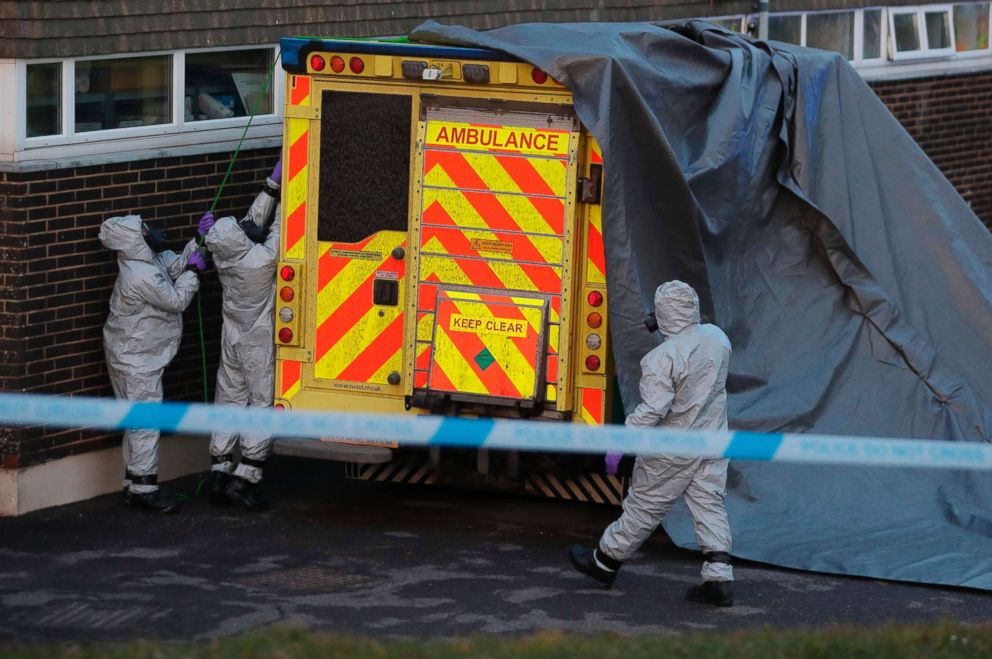
British police have described the poison used against Skripal as a "very rare" nerve agent, suggesting to experts that the state was involved. Security experts, though, have noted that killing Skripal would violate usual codes of conduct in espionage, given that the former military intelligence officer had been pardoned when he was traded for Russian spies in 2010.
A number of other Russian political exiles living in England have expressed doubts that the Kremlin would have ordered the killing now. Valery Morozov, a businessman who fled Russia in 2014, told ABC News, the focus on Putin sometimes provided cover for organized crime.
Putin, himself a former spy, has previously expressed antipathy toward those he considers traitors. The Kremlin seemed to sound that note again.
In an interview in a new documentary released by Russia's state-controlled Channel 1, Putin was asked what is the one thing he cannot forgive.
"Treason," he replies.




